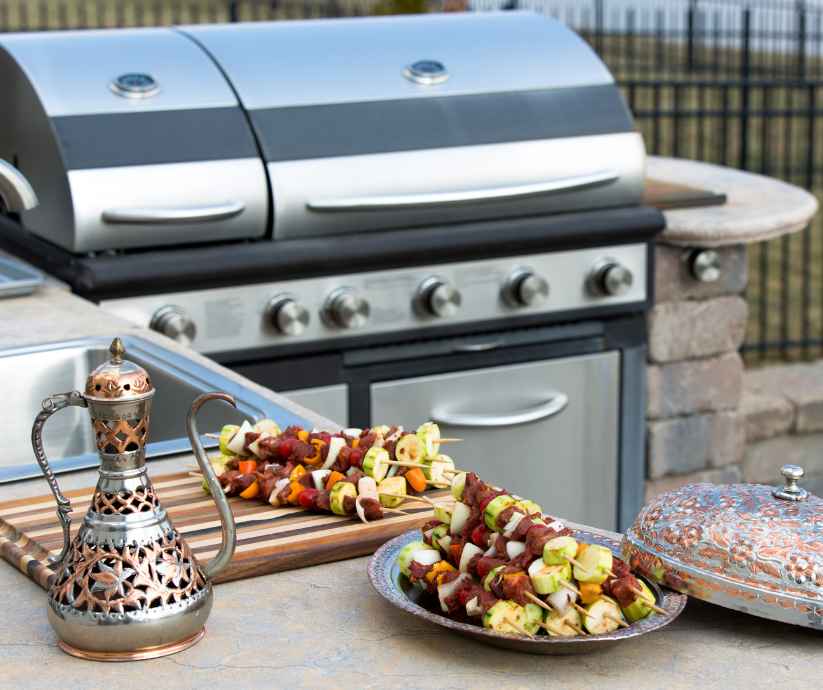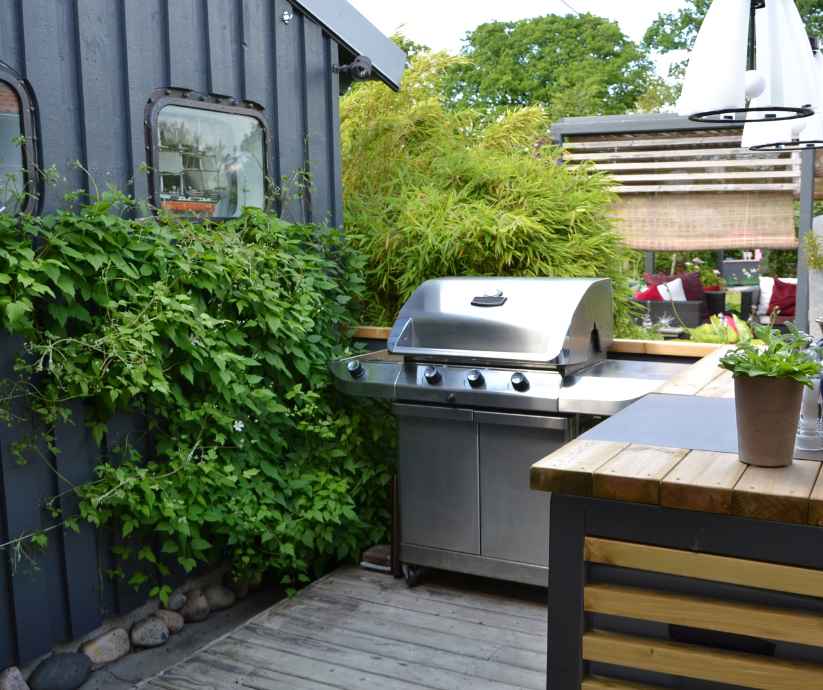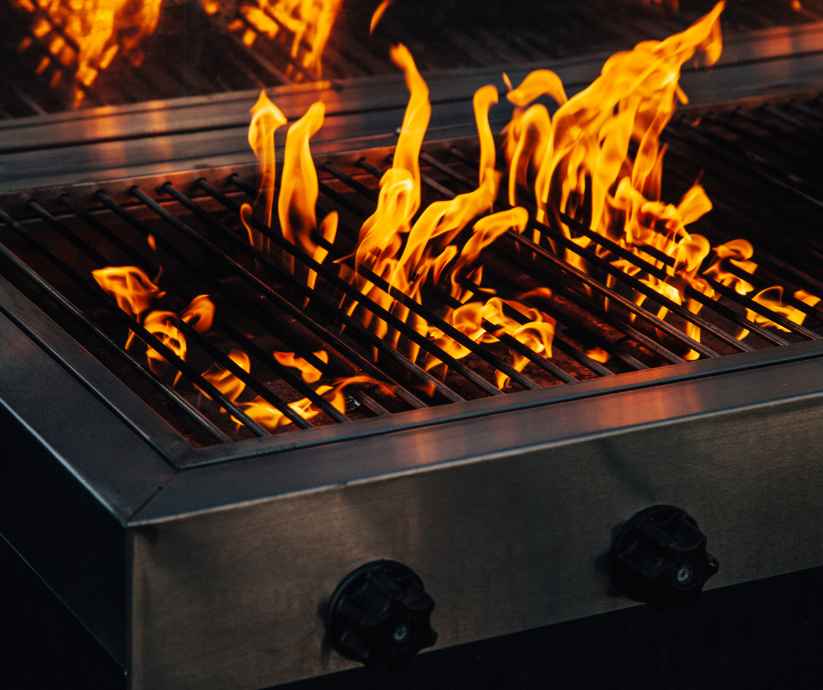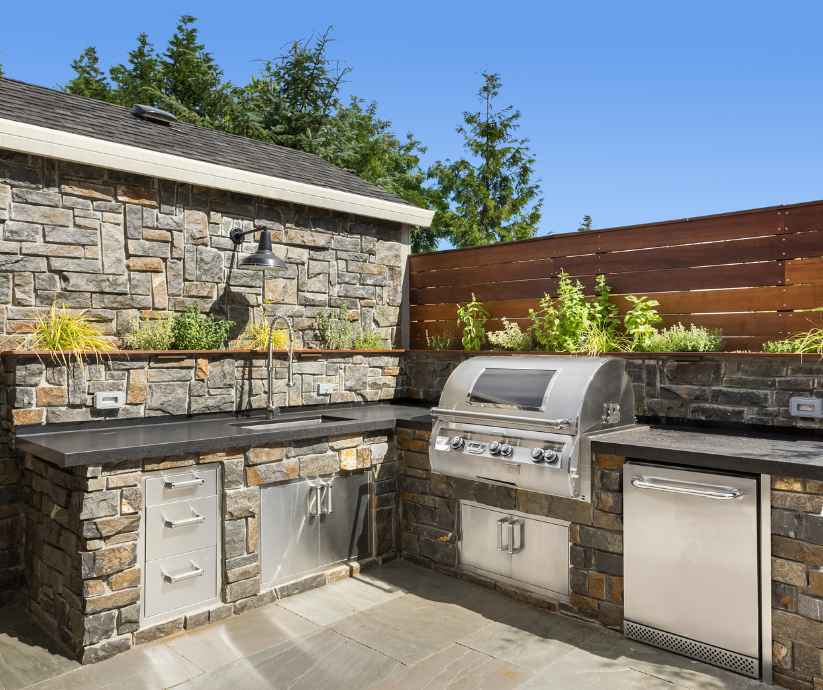An outdoor kitchen with a beautiful oven and BBQ setup is a dream come true for cooking enthusiasts and social entertainers. However, exposure to the elements can lead to the development of rust and corrosion, compromising the functionality and aesthetics of your appliances. We will explore effective strategies to prevent rust and corrosion, ensuring your outdoor cooking equipment stays in pristine condition for years to come.
One of the primary considerations when setting up an outdoor kitchen is selecting materials that are resistant to rust and corrosion. Opt for stainless steel, which is highly durable and has excellent resistance to rusting. Look for appliances that are specifically designed for outdoor use, as they often feature weather-resistant coatings and construction. Additionally, consider materials such as powder-coated aluminium or cast iron with protective finishes, which can provide an extra layer of defence against corrosion.
Regular cleaning is crucial to prevent rust and corrosion. After each use, make sure to clean your outdoor kitchen appliances thoroughly, removing any food residues or grease that may accumulate. Avoid using abrasive cleaners or steel wool, as these can scratch the surfaces and promote rust formation. Instead, opt for mild soapy water and a soft cloth. Additionally, inspect your appliances regularly for any signs of wear, damage, or loose fittings. Promptly address any issues to prevent further deterioration.
When not in use, it is essential to protect your outdoor kitchen oven and BBQ from the elements. Invest in high-quality covers that fit your appliances snugly, shielding them from rain, sun, and other environmental factors. Before covering, ensure that your equipment is completely dry to prevent moisture entrapment, which can accelerate rust formation. If you live in a particularly humid or coastal area, consider using moisture-absorbing products, such as desiccant packs or silica gel, inside the covers to reduce humidity levels.
Seasoning and oiling your outdoor cooking appliances are an effective ways to create a protective barrier against rust. Before using cast iron grates or surfaces, apply a thin layer of vegetable oil, which will prevent moisture from coming into direct contact with the metal. For stainless steel surfaces, use a food-grade stainless steel cleaner or polish to maintain their resistance to corrosion. Regularly reapply oil or cleaner, especially after a deep cleaning or exposure to harsh weather conditions.
When you hire a professional like https://optimacleaners.com.au/oven-and-bbq-cleaning/brisbane/, you can say goodbye to the hassle of scrubbing and scraping, and instead welcome a gleaming and hygienic cooking environment. Trust them to handle the tough stains and stubborn residues, allowing you to focus on creating mouthwatering dishes while enjoying the benefits of a spotlessly clean appliance. They have years of experience in cleaning kitchen equipment’s it might be indoor or outdoor use.
While outdoor kitchens are meant to be exposed to the elements, placing your appliances in a sheltered area can help prolong their lifespan. Consider positioning your outdoor oven and BBQ in a covered patio, pergola, or under an awning to provide additional protection against rain and direct sunlight. If a sheltered area is not feasible, you can install a canopy or use patio umbrellas to create temporary coverage during severe weather conditions.
Preventing rust and corrosion in your outdoor kitchen oven and BBQ is essential to ensure their longevity and performance. By choosing the right materials, practising regular cleaning and maintenance, utilizing proper storage and covers, seasoning and oiling surfaces, and considering sheltered placement, you can significantly reduce the risk of rust and corrosion. With these proactive measures in place, you can enjoy outdoor cooking experiences and gatherings without worrying about the deterioration of your valuable cooking appliances.




